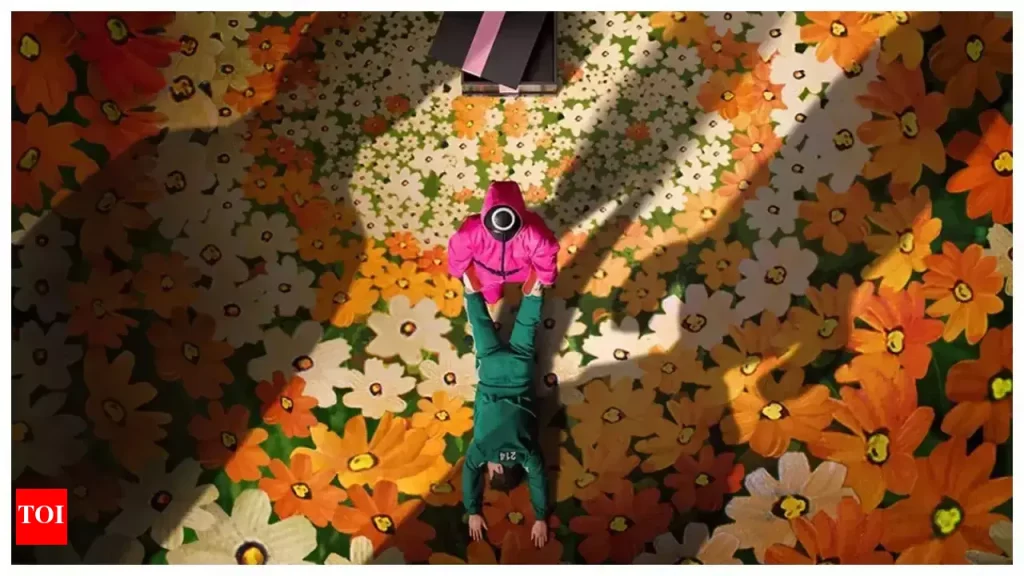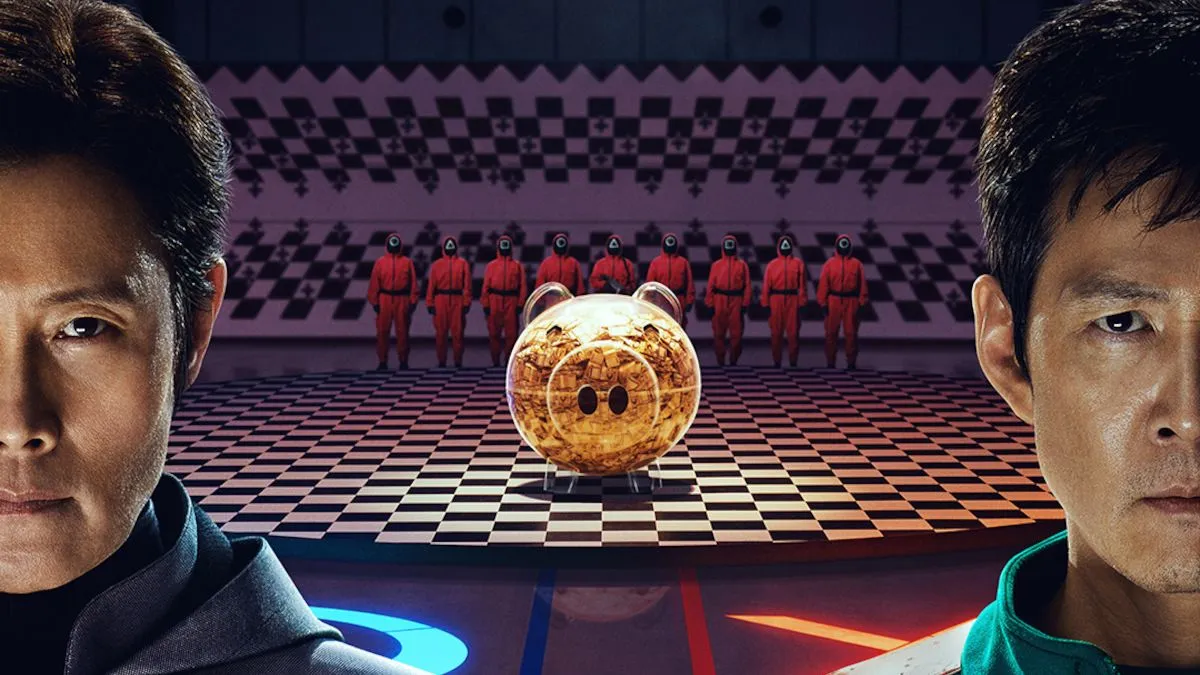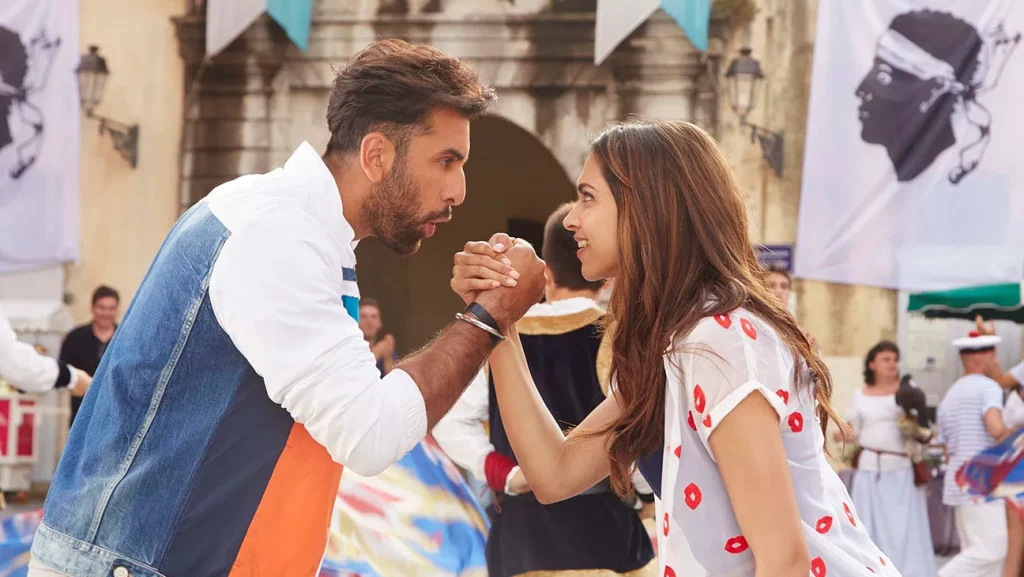This is not a review of Squid Game based on performances, story, thrills, or impact.
It’s a narration of what Season 3 made me feel.
And honestly, I believe reviews should be like that —
Either you like something, or you don’t.
Maybe you like it only a little, or perhaps you love it deeply.
Bringing logic into a vision often ruins the whole point of a story.
A story isn’t just meant for entertainment — it can also take you to emotional depths you’ve never explored before.
That’s what I want to share here.
The entire series revolves around the entertainment of the elite — the privileged — at the cost of the poor and suffering.
Even in Season 1, we, the viewers, enjoyed watching people being killed in childhood games.
That race for survival enthralled us.
These kinds of questions often visited me in the name of philosophy:
What would I do if I had to choose between killing a friend or dying myself?
That dilemma — more than the action — spoke deeply to me.
And Gi-hun’s character walked alongside my thoughts through the entire season.
At the start of Season 3, we see Gi-hun sad, broken, and introspective.
He had money, but instead of enjoying it, he chose to return to find the VIPs and expose them.
But he got pulled back into the game.
He tried to lead a rebellion again, and again he was betrayed.
He lost his friend in the process.
I could feel his helplessness as he observed the games unfold.
He tried everything, but nothing worked.
Eventually, he channeled his rage toward Dae-ho, the man who had betrayed his comrades in Season 2.
When Gi-hun finally had the chance to kill Dae-ho, he hesitated.
But later, their conflict reignited — and this time, he killed him.
But that act didn’t bring him peace.
He thought revenge would satisfy something inside — but it didn’t.
So in the final episode, when the Front Man handed him the knife and asked him to kill the remaining players, he couldn’t do it.
He realized: This won’t make me happy either.
The Front Man wanted Gi-hun to kill — just as he once had — because killing others felt easier than killing himself.
That’s the illusion we’re taught in life: survival at all costs.
But Gi-hun chose differently.
That made him, in my eyes, more human than ever before.
The Front Man’s face showed it — a look of realization.
A look that said: Maybe I was wrong.
Gi-hun had always been shown as caring and sympathetic.
He accepted the pregnant woman, Jun-hee, into their team.
He saved her baby during the game.
He wanted to save her, too — but there wasn’t enough time.
He knew people were going to die.
But still, he fought for himself and others.
And even in the darkest moments, he never threw anyone under the bus.
That, to me, is what humanity should aspire to:
To help others, and ourselves, without losing our souls.
Yet despite all that, he didn’t get justice.
He was searching for goodness within himself —
But he couldn’t find it around him.
Not once did the group vote to end the game.
He was surrounded by evil, with good people dying one by one.
He was conflicted.
He was silent.
He still believed in justice, but he could no longer trust what he was experiencing.
In the final episode, Gi-hun gave Jun-hee’s boyfriend a chance.
He told him he would sacrifice himself so the boyfriend and the baby could live.
But the boyfriend didn’t believe him.
Because he wouldn’t have done it.
So how could he believe anyone else would?
It was a valid human reaction.
But it was the moment Gi-hun realized:
He’ll have to kill this man to save the baby.
Until that point, Gi-hun had been doing the right things.
But he still hadn’t been tested.
Then, he forgets to press the switch before killing Jun-hee’s boyfriend.
The final game begins:
Either he kills himself, or kills the baby.
If he does nothing, both die.
This is the ultimate test of everything he’s stood for.
He could kill the baby, take the money, and try again to expose the system.
Or — he could kill himself, and let the baby live.
To the VIPs, this was entertainment.
They wanted him to kill the baby — that’s where the value was.
The Front Man wanted that too, because it’s what he would’ve done.
This is what we’re programmed to believe:
That is, when survival is on the line, we behave like animals.
It was a simple choice.
But Gi-hun didn’t see it that way.
He saw the repercussions, not just the options.
Whatever he did, he felt betrayed by the system.
And so, his final act didn’t feel like a choice.
He wasn’t choosing death, or even choosing for the baby to live.
It felt like that moment allowed him to step outside the system entirely.
He didn’t choose.
He simply witnessed.
And that felt like liberation.
He said, “Humans are…”
To me, that sentence meant:

Humans are meant for humanity, kindness, compassion — and liberation.
The VIPs were disturbed —
Because they had just seen a real human act.
For the first time, someone broke their program.
Someone ruined their design.
And in that moment, they felt their emptiness.
Their power, their money — it had never touched this kind of truth.
That final scene wasn’t about death.
It was about life.
And that ending touched something in me that went beyond logic,
beyond strategy,
beyond survival —
It touched on what it means to be human.



